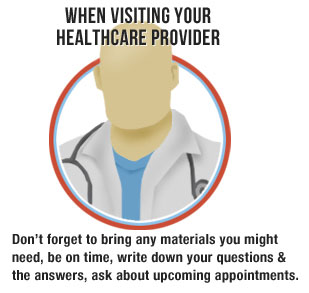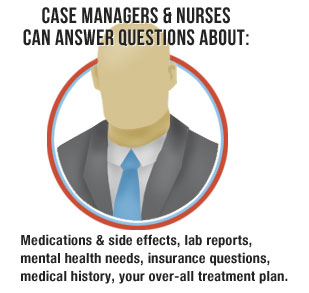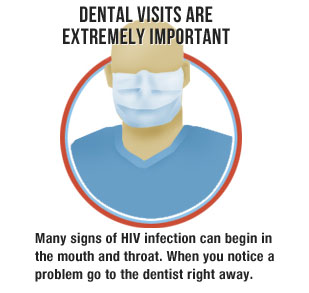Managing Multiple Appointments
Living with HIV/AIDS could mean that you will have to keep track of many appointments with different healthcare providers, including dentists, nurses, physicians, nurse practitioners, case managers, counselors, psychiatrists, alternative medicine practitioners, and others. It can get complicated, but you can keep things from getting confusing by preparing yourself with a plan.
Provider/Clinic Visits
Visits and appointments with your healthcare provider and other clinics will probably become a routine part of your daily life. Sometimes, you may need to see your primary healthcare provider. Other times, you may just need to check in with a nurse, give your case manager an update, or have some lab work done.
These tips may help you prepare better for your visits to your healthcare provider or clinic and get more out of them:
- Don’t forget to bring along any materials you, or your healthcare provider, might need, like a lab slip, your most recent x-rays, your meds, etc. Having this information will help your provider give you better care, and may shorten your appointment time.
- Be on time. Most healthcare providers have full appointment schedules—if you are late, you throw the schedule off for everyone who comes after you.
- Write down any questions you have before you go, and write down your provider’s answers. Keep your questions and answers in a small notebook. This will help you keep track of what you need to know to stay healthy.
- Ask your provider about the next visit and what you should bring to your appointment. Write it in your notebook.
- Ask for a list of your upcoming appointments when you check out.
It’s important to remember that you may need direct your questions to different people, depending on what you need/want to know:
- Nurses and case managers can often answer questions about:
- Your medications and side effects
- The meaning of lab reports
- Mental health needs you might have
- Insurance questions
- Your medical history
- Your over-all treatment plan
- Providers (doctors, nurse practitioners, physicians assistants) can answer specific questions about:
- Medication changes and new medications
- Clinical trials
- The meaning of complex test results
- Surgical procedures
- Referrals for both medical and mental health issues
- Your prognosis (how your HIV disease is affecting your body)
- Symptom management
For more information, see the Department of Veterans Affairs’ Questions to Ask Your Doctor.
Dental Appointments
Dental visits are an extremely important part of your care when living with HIV. Many signs of HIV infection can begin in the mouth and throat, which is why careful monitoring and evaluations by a skilled healthcare provider are important.
Tips for your dental visit:
- Ask your dentist how many HIV/AIDS patient he or she has treated and about their experience in HIV/AIDS care.
- Don’t wait for problems in your mouth to get out of hand. When you notice something wrong (tooth pain or a sore) call your dentist right away.
- Be on time for your dental visit. Sometimes scheduling a dental appointment is even harder than a regular clinic appointment. Try not to miss your appointment, if you can help it—and if you can’t, reschedule it ASAP.
- Keep a record of your dental visits, just like you do with your visits to your healthcare provider. You should keep track of when you had dental X-rays (and what was X-rayed), any procedures or treatments you had, and when your next visit is scheduled.
- Bring your test results and lab reports. Your dentist may need to have information about your CD4 count and platelet count to know how best to treat your dental issue.
For more information, see A Clinical Guide on Supportive and Palliative Care for People with HIV/AIDS: Chapter 8–Oral Problems. ![]()
Related Topics on AIDS.gov
Last revised: 03/15/2011



